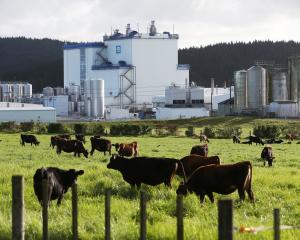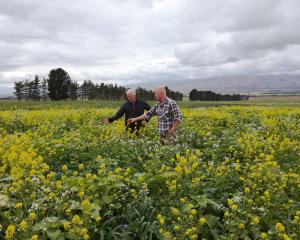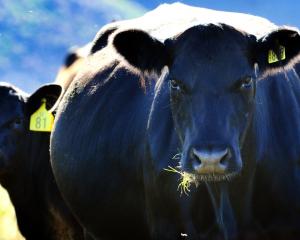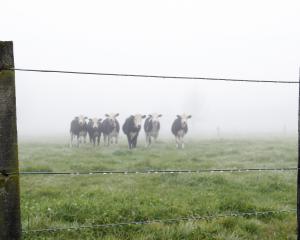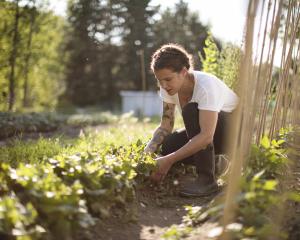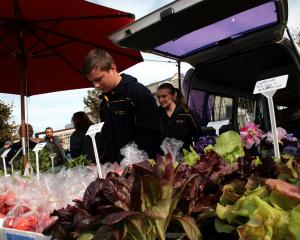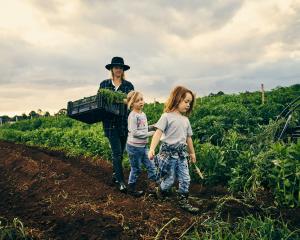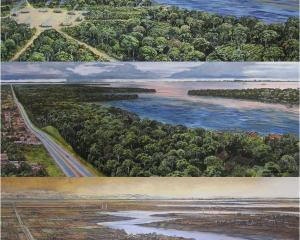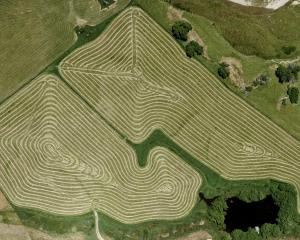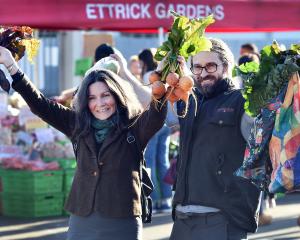However, focusing entirely on the production side of food system change runs the risk of missing out on other opportunities that may support a more rapid transition to sustainability.
For example, Koi Tu: The Centre for Informed Futures at the University of Auckland released a discussion paper on "The Future of Food and the Primary Sector: The Journey to Sustainability" in June. Based on input and feedback from key players in the primary sector, it effectively outlines the potential changes in global markets towards a more values-based food industry based on food safety, nutritional value, animal welfare, carbon footprints and environmental protection.
It acknowledges the efforts that farmers and producers are already making to reposition themselves for a future based on the values of sustainability, resilience and kaitiakitanga. Their undertakings to move away from a linear production system based on extracting greatest economic output and externalising environmental impacts towards a more circular approach that places greater emphasis on the health of the land, soils, waterways and biodiversity are under way.
The key focus of the report is identifying how these efforts can best be supported and accelerated. It is suggested that these moves can be enhanced through greater adoption of technologies by the primary sector to leverage their rising reputations based on a full commitment to sustainability.
New investments in research and technology, such as innovative use of big data, improved sensors, use of artificial intelligence and gene editing may provide opportunities to reduce environmental footprints in the primary sector, but also enable the sector to be more flexible and adaptable to changing consumer preferences globally.
Taken together, these kinds of interventions provide opportunities to tell the world a new story about the sustainability commitment of primary production in New Zealand and strengthen the New Zealand brand.
Overall, the direction and focus of these conversations are welcome. However, there are missed opportunities to extend the conversation.
Clearly, the market opportunities of feeding the world are greater than a focus on feeding ourselves. However, the almost exclusive export orientation in the report fails to acknowledge the issues, challenges and potential contributions of those primary producers that are operating exclusively for domestic markets and that may not have the economies of scale to warrant investments in a technology-dominated future food system. These producers have often been at the forefront of a transition towards sustainability, and have been for many years. One could argue that they have been doing "future" food for years.
In addition, the production side of the future of food is not the whole story. The Environment Aotearoa 2019 report clearly indicates that the key drivers for environmental challenges arise from both agriculture and urban processes.
Thinking about the future of food could provide opportunities to think about addressing those drivers in complementary ways by including production and consumption together.
Most of us live in cities, and the food choices of urban residents have significant environmental implications. For example, the C40 Cities Network has demonstrated that roughly 13% of all consumption-related greenhouse gas emissions are tied to food (e.g., through storage, retail, transportation, waste) and that has the potential to increase to 38% by 2050 if left unaddressed.
Obviously, these considerations were beyond the scope of a report focused on the future of food and the primary sector, but they need equal attention.
Finally, including cities and consumption as part of the conversation about the future of food has the potential to provide for a more balanced and socially inclusive development of both urban and rural areas, where the linkages between urban and rural food systems provide for revitalised linkages across urban and rural divides.
Imagine if these technology focused production-side innovations could be broadened out and were paired up with the citizen-led social innovations under way in our cities that are also using sustainability principles and circular economy approaches to transform food systems. Now that would be an exciting food future for us all.
- Sean Connelly is a senior lecturer in the University of Otago School of Geography.
Comments
"Plant-based" diets in New Zealand are incredibly destructive in New Zealand, relying on packaged, processed and imported foods.
There is nothing sustainable about subsisting on packaged tofu from imported ingredients, while ignoring the lamb grown at your doorstep.
Fake icecream, fake meat, pulses from India and China, and supplements from America and Europe to support this inadequate diet - this is the reality of "plant-based" eating in southern New Zealand, and unlikely to change.
If a person was to eat only locally grown plant foods in Dunedin, half the year would be little but potatoes, swedes and turnips. I don't know any vegan who eats this way. Do you?
"Plant based" sounds good in theory, but only to those who fail to acknowledge food-miles, packaging, processing and storage costs to the environment.
In short, it is a faulty and flawed ideology.
